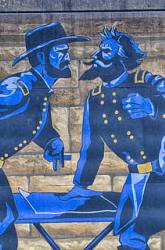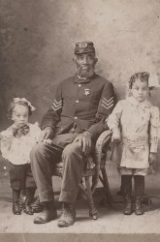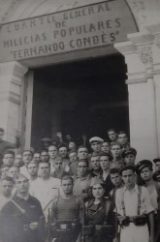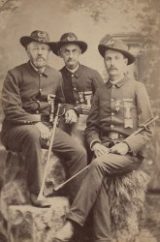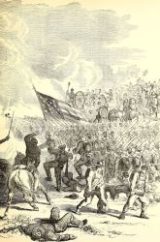Best English Civil Wars Books
| Photo | Title | Rating | Length | Buy |
|---|---|---|---|---|

|
The English Civil War | 8.66/10 | 629 Pages | Check Price On Amazon |

|
The World Turned Upside Down | 9.42/10 | 432 Pages | Check Price On Amazon |

|
God's Fury, England's Fire | 8.68/10 | 758 Pages | Check Price On Amazon |
Neglected Part of History
The English Civil Wars many say are a neglected time in our history, which is a rather bizarre fact given that the results of the wars changed England and Britain completely and made Britain into the parliamentary monarchy that it is today, politically and religiously and ideologically.
The best English Civil Wars books have a very focused viewpoint, focusing either on the sects, or religion, or politics, and bring to light a new way of looking at this time in history.
The English Civil War by Diane Purkiss

 Personal and Political
Personal and Political
Diane Purkiss in The English Civil War gathers together and weaves beautifully letters, plays, ballads and memoirs of actual participants of events during this time. She focuses on the relationship between Oliver Cromwell and Charles I, using eyewitness accounts to tell her story.
By interweaving the personal and the political she brings to life this time in history and the reader feels for the lives and views and feelings of the participants, from foot soldiers and widows to witchfinders and all the many actors in this huge, complex story.
Collection of Accounts
In this regard The English Civil War is not exactly a history book, but is a collection of accounts from original documents written by people who were involved in these events. Some of the writers of these accounts were very important, others not at all, and this adds to the book’s richness.
Oxford Professor Purkiss highlights the ideologies behind the civil wars, she describes the religious atmosphere and differing views through these various participants and their personal accounts. They were very much religious wars since Christianity in its various colors was held so strongly during that time in a way not understood today. It was a time of Christian fundamentalism, and the feud within it between the Protestants and the Catholics.
Psyche and Feelings
But the most interesting aspect of this book is the relationship between Cromwell and Charles I, which she describes until the execution of Charles I and the victory of Oliver Cromwell.
The English Civil War is certainly one of the best books on the English Civil Wars if the reader needs a real personal account, a look through the keyhole so to speak, to events at this time. She manages to unearth the psyche of the people, their feelings, their thoughts, their motives, in a way that other history books lack.
The World Turned Upside Down by Christopher Hill

 Radical Groups
Radical Groups
The World Turned Upside Down by Christopher Hill is an interesting account of the radical groups and their beliefs who were prevalent during this time, groups such as the Ranters, the Levellers, the Fifth Monarchists, The Familists, the Diggers, and many others.
He describes their motives and the triggers that inspired them. There was a very strong basic thrust for a new society during the English Civil Wars, that was ongoing during all the political events and upheavals, and Hill paints a fascinating portrait of the society at the time and the new society that these revolutionary or radical groups desired.
Another God
Subjects the radicals wanted to tackle and attempted to do so were the class system and its injustice, social expectations, and doubts about God leading to outright blasphemy. Religion was the hot topic of the day. Their ideas were subversive and extraordinary and given the religious fervor at the time it is difficult to comprehend.
How such thoughts could even have passed through these minds, let alone be expressed and accepted even by only a few. Many were atheists, or pantheists, or deists. There was a growing movement of such thinkers being impressed by rational science which they then made into another God.
Class War
Politics was the second hot topic; most of these radical sects spoke against the upper class, they supported the Parliamentarians, they opposed the union of church and state. They also wanted moral freedom, and more sexual freedom, more freedom in all things altogether.
Hill as a Marxism historian has his own bias, and tends to see this period in very much class-war terms. His perspective is obvious but that doesn’t deter from the enjoyment of the what is one of the best books on the English Civil Wars.
As Entrenched As Ever
The World Turned Upside Down is criticized for not being historical and factual enough, but it is informative and fascinating and shows a great strength in English thinking and a strong, zealous revolutionary spirit.
There is also the tragedy in it: that the Church and monarchy were restored, and social class remained as entrenched as ever. It is an inspirational book at best, as present day revolutionaries can take some strength from these literary fertile times.
God’s Fury, England’s Fire by Michael Braddick

 Fascinating Account
Fascinating Account
British history professor Braddick writes a fascinating account in this one of the best books on the English Civil Wars. In God’s Fury, England’s Fire he shows the destruction and intellectual chaos: the devastation the wars caused in towns and villages, the deaths, and the fire of revolution that swept through all the various sects. Both sides, fervently religious, believed that they were being punished by God.
The groups were engulfed by a gushing creativity, the iconoclasts, the witch hunters, the Levellers, so many of them, and all sought with fervent passion to try to create a better way to live and think and view life, and in all walks of life, especially in religion and politics.
Not for Beginners
Braddick paints well a picture of the complexities of these Civil Wars and focuses on the political more than the religious. It is acclaimed as an excellent work although not appropriate for the beginner; it requires some prior knowledge and is most suitable for those with advanced knowledge.
Braddick shows above all else how wars are messy, and the Civil Wars in England were exactly that, messy wars that were tripped up into rather than planned. He shows the excellent side of the revolution with the novel thinking of the revolutionaries. But it is very much a political focus and could almost be a reference work, rather than a good interesting read, and is certainly not for the beginner.
Everything as It Was
These best books on the English Civil Wars take on different focuses which bring to light different aspects of this history. The saddest aspect to these most difficult times, with too many deaths and too much devastation to the country, is that the authors show how revolutions often don’t work: the revolutionaries didn’t get what they wanted, and in many ways everything reverted to the way it was: an entrenched monarchy, an entrenched political system, and an entrenched religion.
Still, the intellectual fruits of the time can still act as an inspiration today, as people can use history to spark them on to newer, different thought, that may be right and may be beneficial and may be not: the point being to always assess and think of a possible better way.
Michael Englert
Michael is a graduate of cultural studies and history. He enjoys a good bottle of wine and (surprise, surprise) reading. As a small-town librarian, he is currently relishing the silence and peaceful atmosphere that is prevailing.
